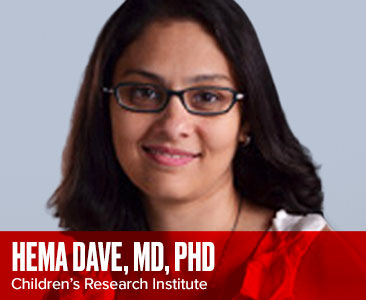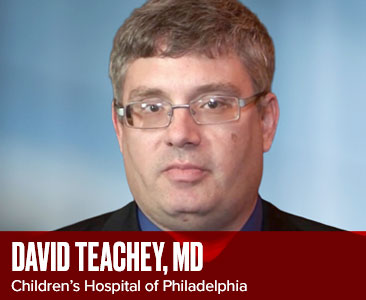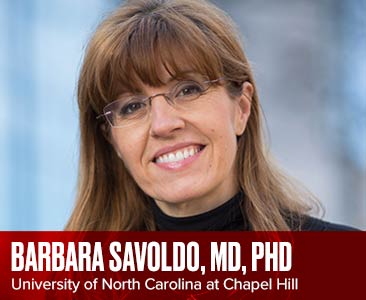LLS Children's Initiative
Investing in breakthrough research

LLS Children's Initiative
Investing in breakthrough research
Through The LLS Children’s Initiative: Cures and Care for Children, The Leukemia & Lymphoma Society is increasing our investment in pediatric cancer research.
LLS has a long history of supporting some of the most impactful research to advance lifesaving therapies for children with blood cancers. From revolutionary CAR T-cell immunotherapy, to leading-edge genomics to identify the drivers of pediatric blood cancers so we can overcome treatment resistance, LLS is leading the way.
LLS is expanding our commitment to childhood cancer research over the next five years.
Supported Researchers
Here are some of the leaders in pediatic cancer we support today.

Kasey Leger, M.D., Seattle Children’s Hospital, received a Career Development Grant from LLS to support her work focused on preventing children diagnosed with acute myeloid leukemia from suffering heart damage due to treatment with chemotherapy. The funding is supporting a study to identify children at highest risk for heart failure to allow timely initiation of medications to preserve heart function.

Although Hodgkin lymphoma (HL) is highly curable, children can develop serious complications years later as a result of treatment. One challenge with Hodgkin lymphoma (HL) is that the microenvironment surrounding the cancer cells actually supports the cancer by allowing it to evade the immune system by suppressing the antitumor activity of T cells. LLS supports Dr. Dave’s efforts to change the tumor microenvironment and unleash the antitumor immune responses of killer T cells in patients with high-risk HL, with a goal of achieving long-lasting cures with fewer side effects than conventional chemotherapy.

Dr. Teachey seeks to improve care for children with acute lymphoblastic leukemia (ALL) by using the drug daratumumab, which is already approved for adults with myeloma or lymphoma. Teachey is focused particularly on T-cell ALL, which has an exceptionally poor prognosis. Teachey’s team is conducting lab studies to confirm the drug’s effectiveness against T-ALL and to understand why some patients are resistant to the drug. The next step will be to conduct clinical trials of daratumuamb in children with T-cell ALL.

A powerful new treatment, chimeric antigen receptor T-cell immunotherapy (CAR T-cell therapy) uses genetic engineering to reprogram the patient’s own immune T cells to find and kill cancer cells. However, CAR T-cell therapy can have severe and potentially lasting side effects. Dr. Savoldo is testing a drug that controls the life span and number of the engineered T cells, seeking to heighten the benefits of this lifesaving new treatment while mitigating the harmful side effects.